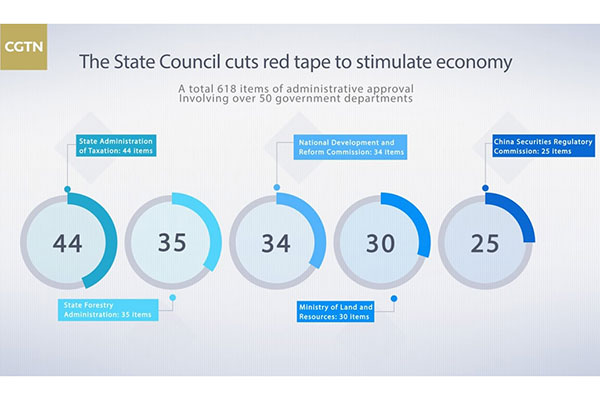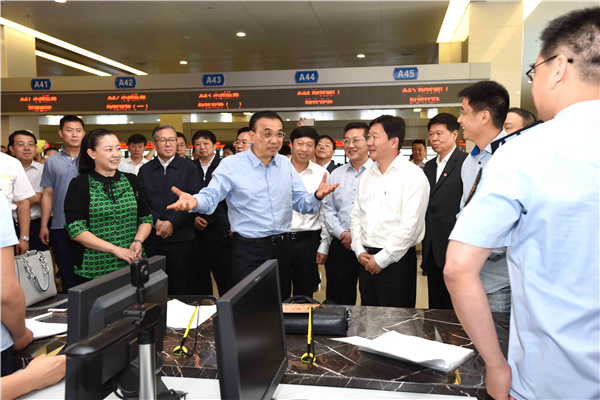
The State Council has abolished 491 items that previously required administrative approval, and delegated 127 items of approval to lower levels since 2013, as part of a wider drive by the government to cut bureaucracy and streamline the economy in the context of a complicated global landscape.
The government released on Feb 10 the full list of items that have been canceled on its website. About 168 items mainly involve resources exploration, enterprise investment, taxation and securities trading, all of which are key areas where the government wants to improve efficiency. The 618 items canceled or delegated to lower levels represent 36 percent of all items that were previously subject to administrative approval.

Premier Li Keqiang inspects the citizens’ service center in Shiyan city of Hubei province on May 23, 2016.
Clearing up administrative procedures represents a crucial step in improving government services, and can speed up economic activities, cut business costs, and reduce burdens and hurdles for enterprises and the people, meanwhile promoting sustained and healthy economic development.
China has given the green light to allowing 76 percent of investment projects to go ahead without review, after they previously required the central government’s approval. More than 95 percent of foreign investment projects and over 98 percent of overseas investment projects can now be registered online.
Since 2015, 40,000 businesses on average have been set up every day, due to lowered business thresholds and an improved business environment.